While I know plenty of people who consume coffee and love the caffeine that comes with it, I also know there are plenty of us that either can’t have or don’t want all that extra caffeine. But, we still want flavorful coffee! I personally don’t tolerate caffeine, so I have tested and am bringing you all the best in decaf coffee brands!
*Affiliate Disclosure: I do have affiliate links in this blog post. If you purchase something from my link, I will receive a small commission from the sale. This comes at no cost to you, but is paid by the company. I do not take becoming an affiliate with any company lightly. If I am, it’s because I believe in the company and their product.
*Suzi(Gurl Gone Green) is a participant in the Amazon Services LLC Associates Program, an affiliate advertising program designed to provide a means for sites to earn advertising fees by advertising and linking to amazon.com.
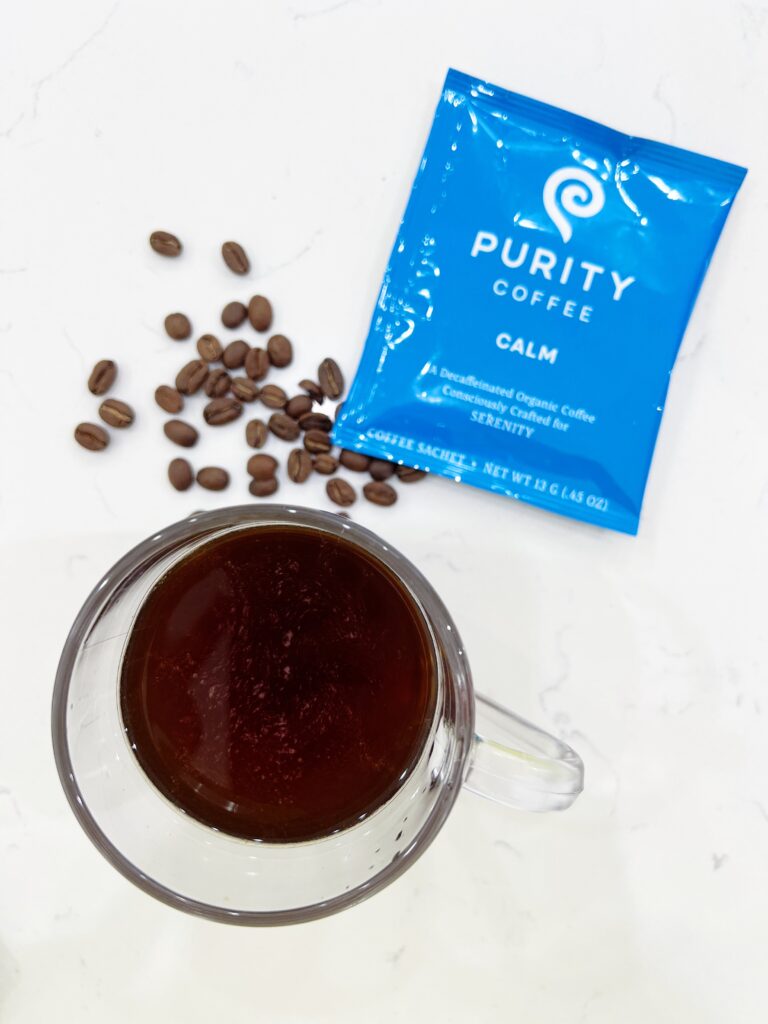
Best Decaf Coffee Brand
No surprises here! Purity Coffee truly offers the very best option for decaf coffee. From the quality of the beans, to 3rd party testing and finally the taste. I have tested A LOT of decaf coffee brands and nothing has come close to the flavor and the smoothness of Purity. Plus when it comes to decaf, some coffees taste watered down with little flavor. But not with Purity Calm!
Use code GURLGONEGREEN to save 20% off your order (first time customers)!
What To Look For In A Decaf Coffee
There are a few things you should consider when choosing a decaf coffee brand.
1. 3rd Party Certifications
The 3rd party certifications that a brand carries tells a lot about their quality. It also ensure that that any claims a brand makes are actually true. A few I like to look for include:
- USDA Organic– This means the farming practices don’t include synthetic pesticides, herbicides, or fertilizers, or the use of genetically modified organisms (GMOs).
- Rainforest Alliance Certified– This guarantees products are sourced sustainably, meeting strict environmental, social, and economic standards.
- Bird Friendly– Established by the Smithsonian Migratory Bird Center, this guarantees that coffee farms maintain a healthy habitat for migratory birds. It ensures shade-grown coffee, promoting biodiversity and sustainability.
- Demeter is a Biodynamic Farm Standard– This guarantees farming practices align with biodynamic principles, emphasizing holistic approaches to agriculture, biodiversity, soil health, and ecological sustainability.
- UTZ– This signifies sustainable farming practices, focusing on social and environmental aspects. It ensures responsible sourcing of coffee, promoting better farming methods and improved livelihoods for farmers.
- Fair Trade– This ensures that producers in developing countries receive fair prices for their products, along with better working conditions and sustainable practices. It aims to empower farmers and workers, promote social equity, and support environmental sustainability.
- Specialty Grade are coffee beans grown in ideal climates, picked under the correct conditions, with no defect in the bean shape or quality as well as scoring an 80 or above on a scale that goes up to 100 when put through rigorous testing.
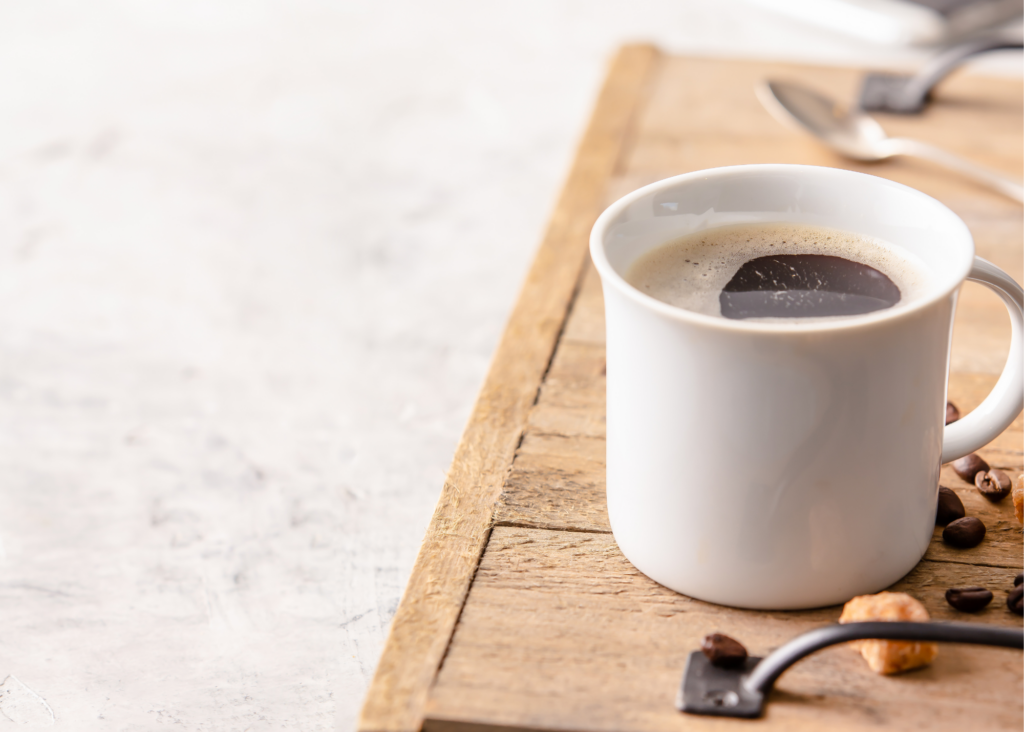
2. 3rd Party Testing
Unfortunately coffee can be contaminated with things like mold, mycotoxins and more! Typically this is a result of farming, storing, processing or transport practices. Some will argue that there either isn’t mold/mycotoxins in coffee or the amount isn’t enough to be concerned with.
Unfortunately there are a variety of studies that have tested commercially available coffee brands that did fine mycotoxins in 26.6% and 45% of the brands.
Without 3rd party testing, it would be impossible to know which brands are or are not contaminated. You also want to actually request the 3rd party testing to make sure the claims that are being made by a brand can be backed up!
Related Content: Best Mold & Mycotoxin Free Coffee Brands
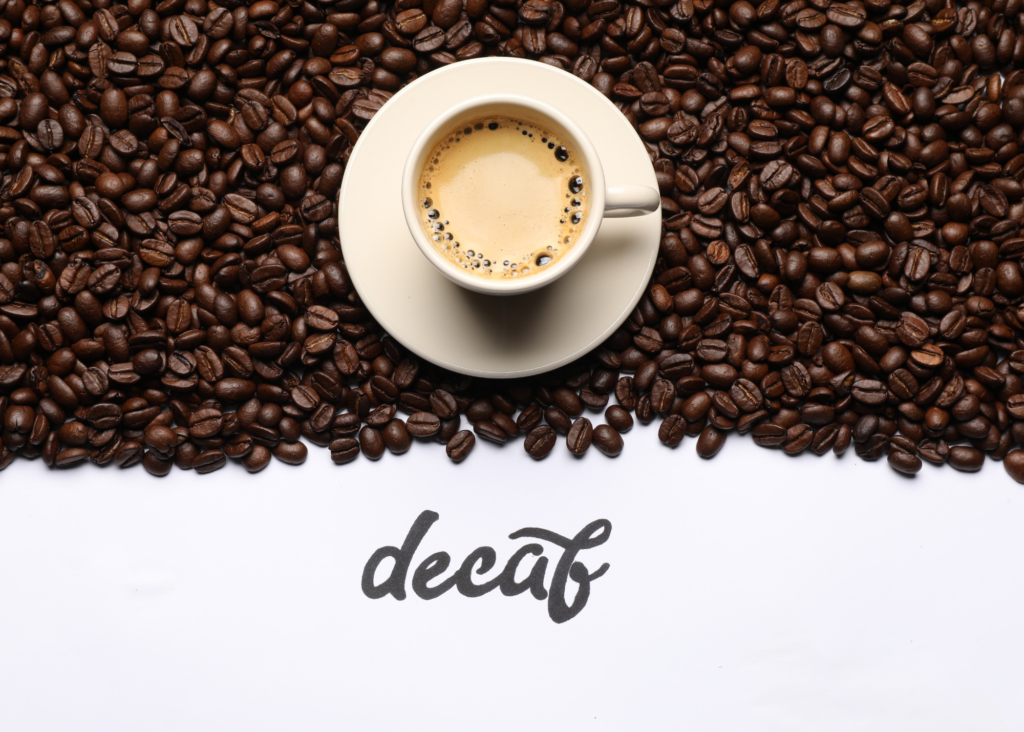
3. Decaf Process
There are three main methods for making decaffeinated coffee:
1. The conventional methods of making a decaf coffee involve immersing green coffee beans in solvents like methylene chloride or ethyl acetate – chemicals commonly found in paint thinners, degreasers, or nail polish removers. Needless to say, the idea of consuming coffee soaked in such toxic substances is unappealing to me.
2. The carbon dioxide method uses CO2 to extract caffeine from green coffee beans in a pressurized environment, leaving behind decaffeinated beans. Unfortunately this is a fairly expensive process.
3. The are also water process decafs. This includes two different types the Swiss Water Method and the Mountain Water Process. They are quite similar and are both able to make decaf coffee without the addition of toxic chemicals (solvents list above) while ensuring the integrity of the coffee’s flavor profile remains.
**It’s also worth noting that caffeine in coffee serves a protective function against mold growth, inhibiting its proliferation. (source) Consequently, as someone who relies on decaf, it becomes imperative for me to select a brand that rigorously tests for mold and mycotoxins.
5 Best Decaf Coffee Brands
Purity Coffee
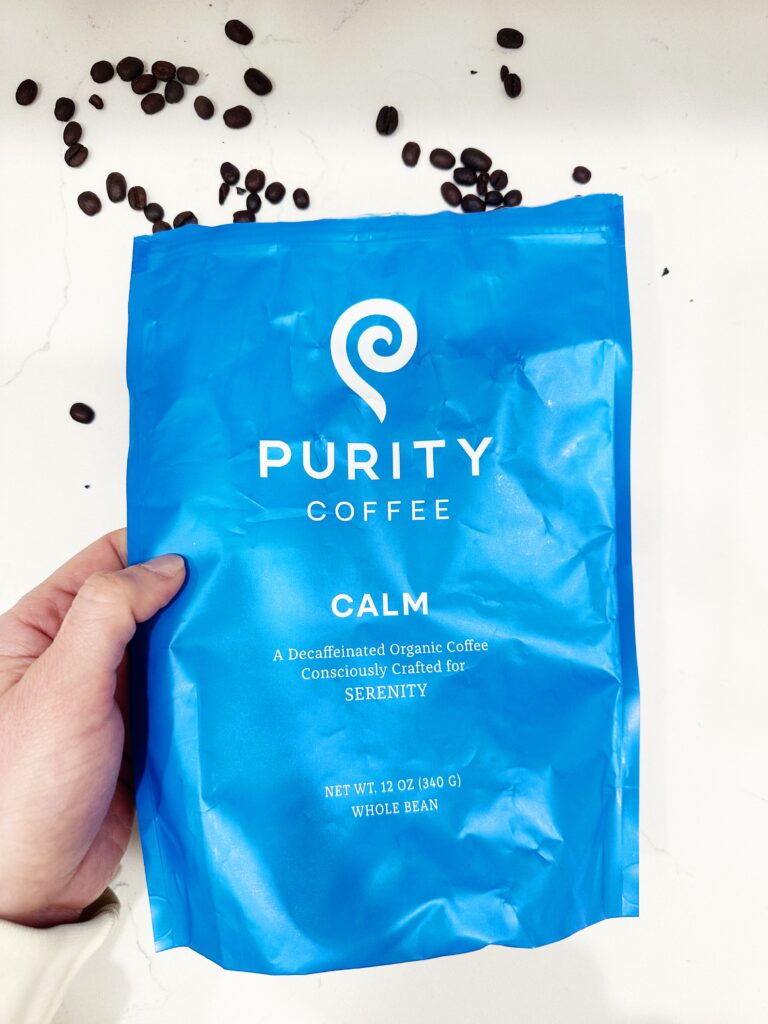
Purity Coffee is a brand known for its commitment to providing high-quality, organic coffee. Their beans are carefully selected and roasted to optimize flavor and health benefits. Purity Coffee also prioritizes transparency and sustainability throughout their production process.
Decaf Available In
Whole bean, coffee pods, sachets
Decaf Roasts
Medium roast. They also offer a roast that is 1/3 caffeinated (Purity Balance)
Certifications
USDA Organic, Specialty Grade, Rainforest Alliance Certified, Smithsonian Bird Friendly, Demeter Biodynamic Certified, beyond Fair Trade
Decaf Process
Swiss Water Process
Mold Testing and Lab Results
Available on their website. Each batch of coffee beans is tested multiple times throughout the supply chain. For current lab results, please see each coffee’s results page in the “About” tab.
Review
This is hands down the best decaf coffee I’ve ever had. I love that it doesn’t taste watered down, but rather smooth and full bodied. It’s my top recommendation to others and I always get the same response, “This is the best decaf coffee I’ve ever had!” I couldn’t agree more and feel so confident recommending it to others.
Use code GURLGONEGREEN to save 20% off your purchase (first time customers only)!
Related Content: Purity Coffee Review
Lifeboost Coffee
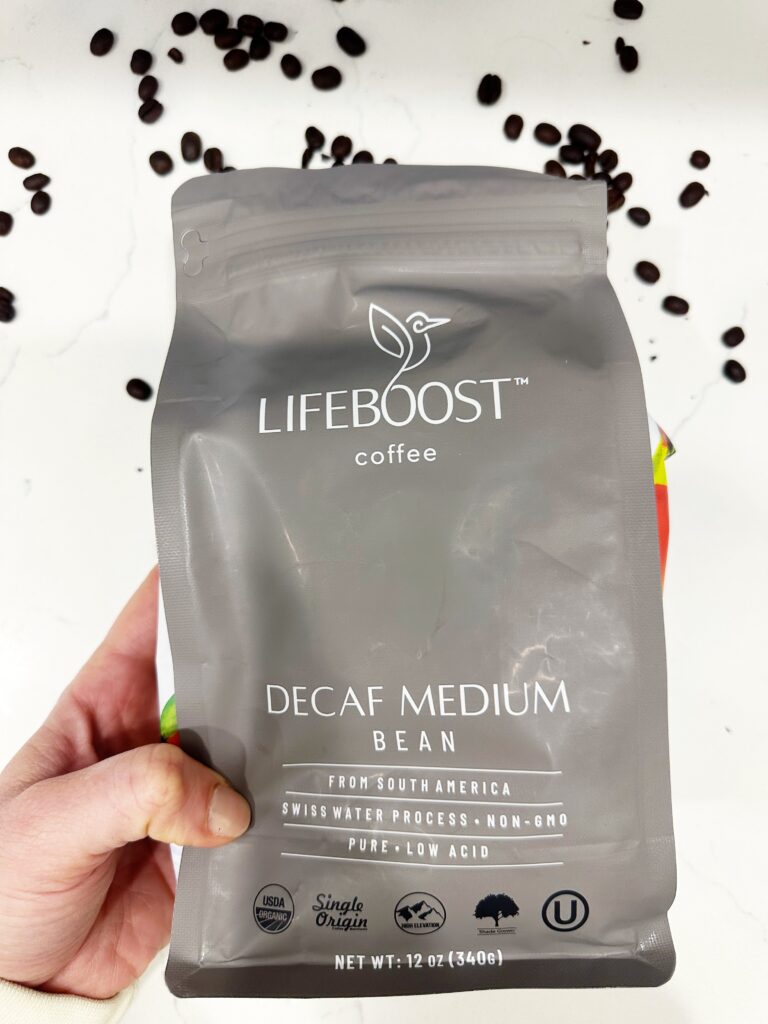
Lifeboost Coffee, founded by Dr. Charles Livingston, offers single-origin beans grown organically in South America. Grown at high altitudes, their coffee yields a smooth, low-acid brew. With a commitment to sustainability and fair trade, Lifeboost provides a clean cup of coffee.
Decaf Available In
Whole bean and ground.
Decaf Roasts
Light, Medium, Dark and a variety of flavored options. They also offer a half caff options.
Certifications
USDA Organic (this includes the Light, Medium, Dark, Espresso and Midnight roasts as they are working on getting their flavored roasts certified), Fair Trade Organic
Decaf Process
Swiss Water Process
Mold Testing and Lab Results
Available upon request. They test each time they get a batch of green coffee beans from their farmers (1-2x per year).
Review
Lifeboost offers the only clean “flavored” coffee that I have found. Natural flavorings and essentials oils are used vs artificial flavorings in other brands. Not only that, but they offer these in decaf options. I have tested a variety of these flavors including the Decaf Hazelnut Coffee and Decaf French Vanilla Coffee. Adding a little coconut milk to these and it is such a treat! I also tried their Decaf Dark Roast and love it! Their coffees are such a low acidity overall with a smooth taste. I definitely recommend Lifeboost!
Use code GGG20OFF to get 20% off your purchase!
Related Content: Lifeboost Coffee Review (Pros + Cons)
Kicking Horse Coffee
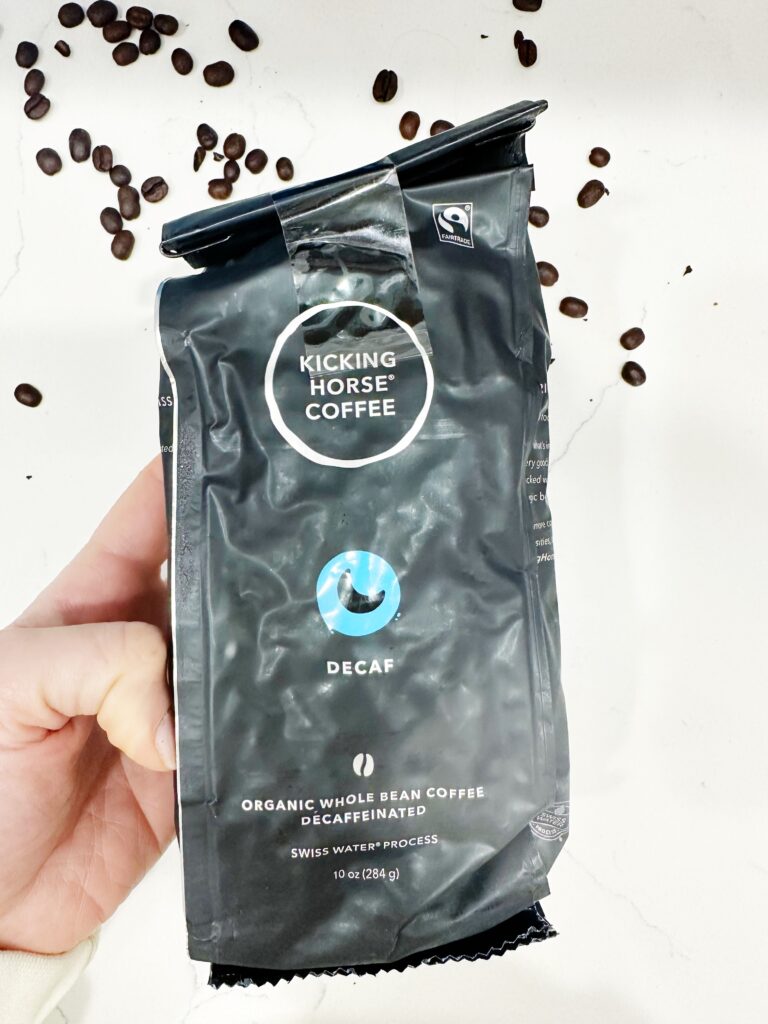
Kicking Horse Coffee began as a two person operation in a garage in the late 90’s. Since, it has grown immensely, but the brand has remained true their roots. With a focus that has always been on organic, fair trade beans and bold flavors this is a brand that can be found at leading retailers with a price that fits many budgets.
Decaf Available In
Whole bean
Decaf Roasts
Dark Roast
Certifications
USDA Organic, Fair Trade
Decaf Process
Swiss Water Process
Mold Testing and Lab Results
They report their testing has always been negative to mold, bacteria and yeast. However, when I requested the most recent testing, I was never given it.
Review
Kicking Horse Decaf Dark Roast Coffee offers a full bodied flavor. It doesn’t taste weak at all, but like a true dark roast coffee. This isn’t the case with most decafs and unfortunately they often taste watered down compared to a regular cup of coffee. I really love how I don’t feel like I’m compromising on flavor when I drink Kicking Horse decaf coffee. I like to drink it black or it’s also good with some coconut milk (or cream)!
Kion
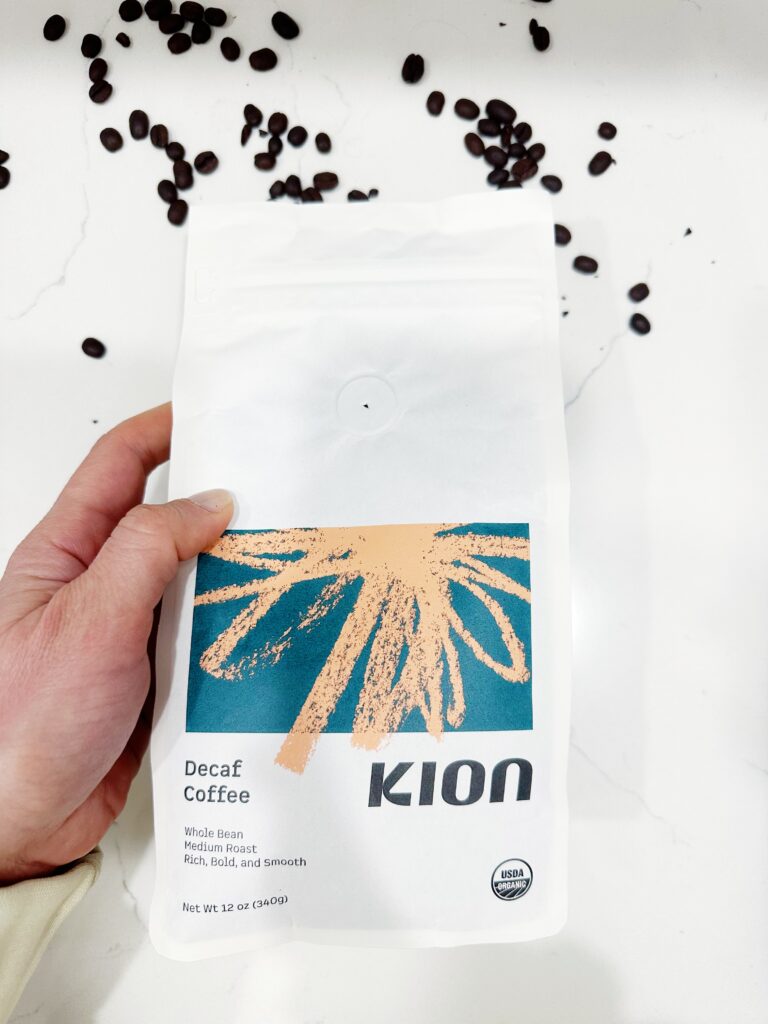
Kion crafts premium, research-backed supplements and foods to enhance vitality and longevity- and this includes coffee! By rigorously selecting top-quality natural ingredients, they optimize wellness and performance. With meticulous research, premium sourcing, and strict manufacturing standards, Kion ensures each product delivers on quality and efficacy, empowering individuals to unlock their inner energy for a vibrant life.
Decaf Available In
Whole bean
Decaf Roasts
Medium Roast
Certifications
USDA Organic, Fair Trade
Decaf Process
Mountain Water Process
Mold Testing and Lab Results
Per Kion, their coffee is 3rd party tested for and free of mold and mycotoxins and highest in antioxidant levels of any other coffee on the market. However, they do not share the testing results publicly.
Review
Kion is a brand I tried a few years ago but wanted to try again so I could compare to the other decaf brands. And, it didn’t disappoint! It was smooth and strong for a decaf. It was a little more acidic than other decafs I tested (like Purity) but it was still an impressive cup of coffee!
Use code GGG to save 10% off your order!
Fabula
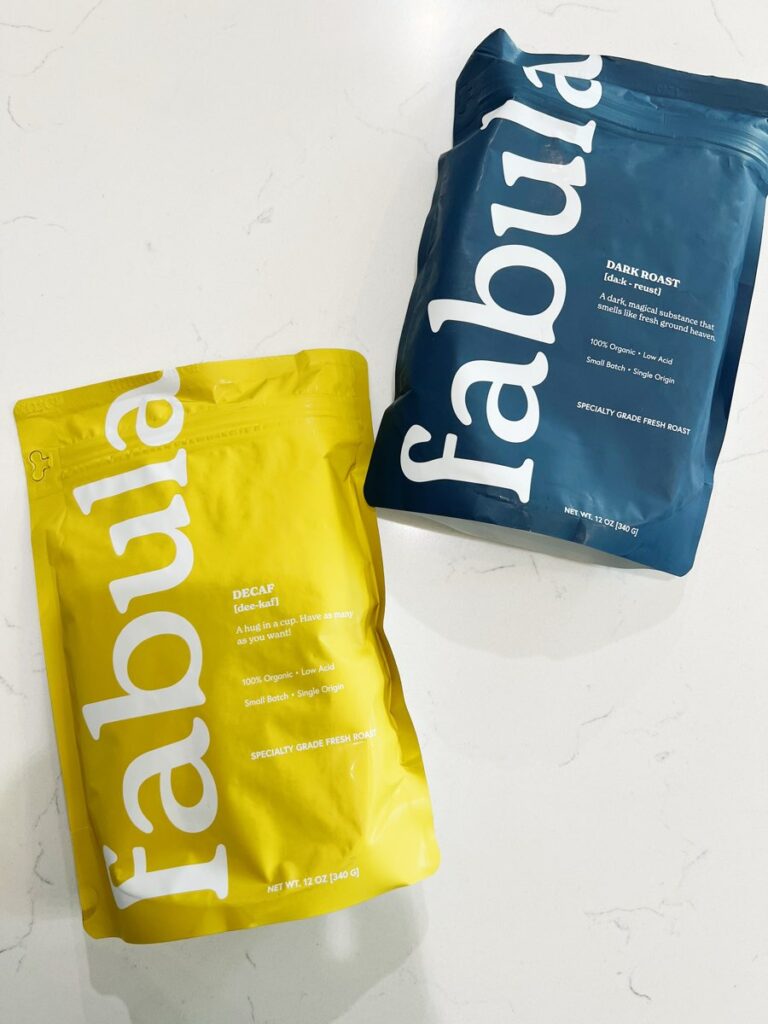
Fabula was born out of a desire to bring the best and healthiest cup of coffee to the consumer – while making it accessible to as many people as possible. I love that they aim to make the best quality coffee- which included roasting it right before it is shipped. This means you will received your coffee at peak freshness!
Decaf Available In
Whole bean, ground and coffee pods
Decaf Roasts
Medium and Dark Roast
Certifications
USDA Organic, Vegan, Non-GMO
Decaf Process
Swiss Water Process
Mold Testing and Lab Results
Available upon request. Beyond mold and mycotoxins, Fabula also tests for 350+ chemical compounds.
Review
You know a coffee is good when it reminds me of Purity Coffee;) Fabula’s decaf has a nice smooth flavor overall plus it is strong for a decaf. It does have a slight bitter flavor at the end but hardly there. It does well in my espresso machine as shots or as regular ground coffee. Very fragrant for a decaf too. I would definitely buy it again!
Use code GGG20 to save 20% off your order!
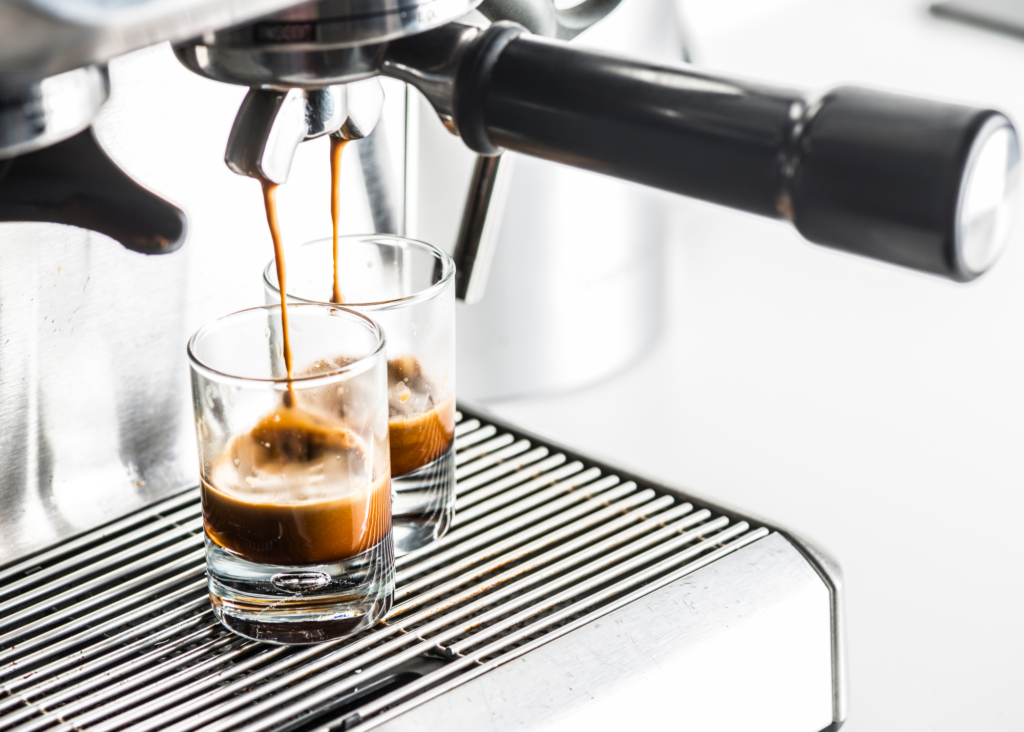
Decaf Coffee FAQ’s
1. Is there caffeine in decaf coffee?
According to the National Coffee Association, there actually is a small amount of caffeine in decaf coffee. The decaffeination process removes approximately 97% of the caffeine present, leaving around 2 mg of caffeine. A typical cup of coffee can have upwards of 95 mg of caffeine.
2. Does decaf espresso exist?
Decaf espresso does exist! Espresso is actually a brewing method not a type of bean, so you can just use your decaf coffee to make an espresso shot. To be noted you will see coffee labeled as ‘espresso beans’ and this just means they are more ideal for espresso, which is a medium or dark roast.
3. What is the best way to make decaf coffee?
The best way to make decaf coffee is through the Swiss Water Process. It uses no toxic chemicals to remove the caffeine and is more cost effective than other processes.
What’s your favorite decaf coffee brand? Share below!
If you liked this post, check out these past posts:

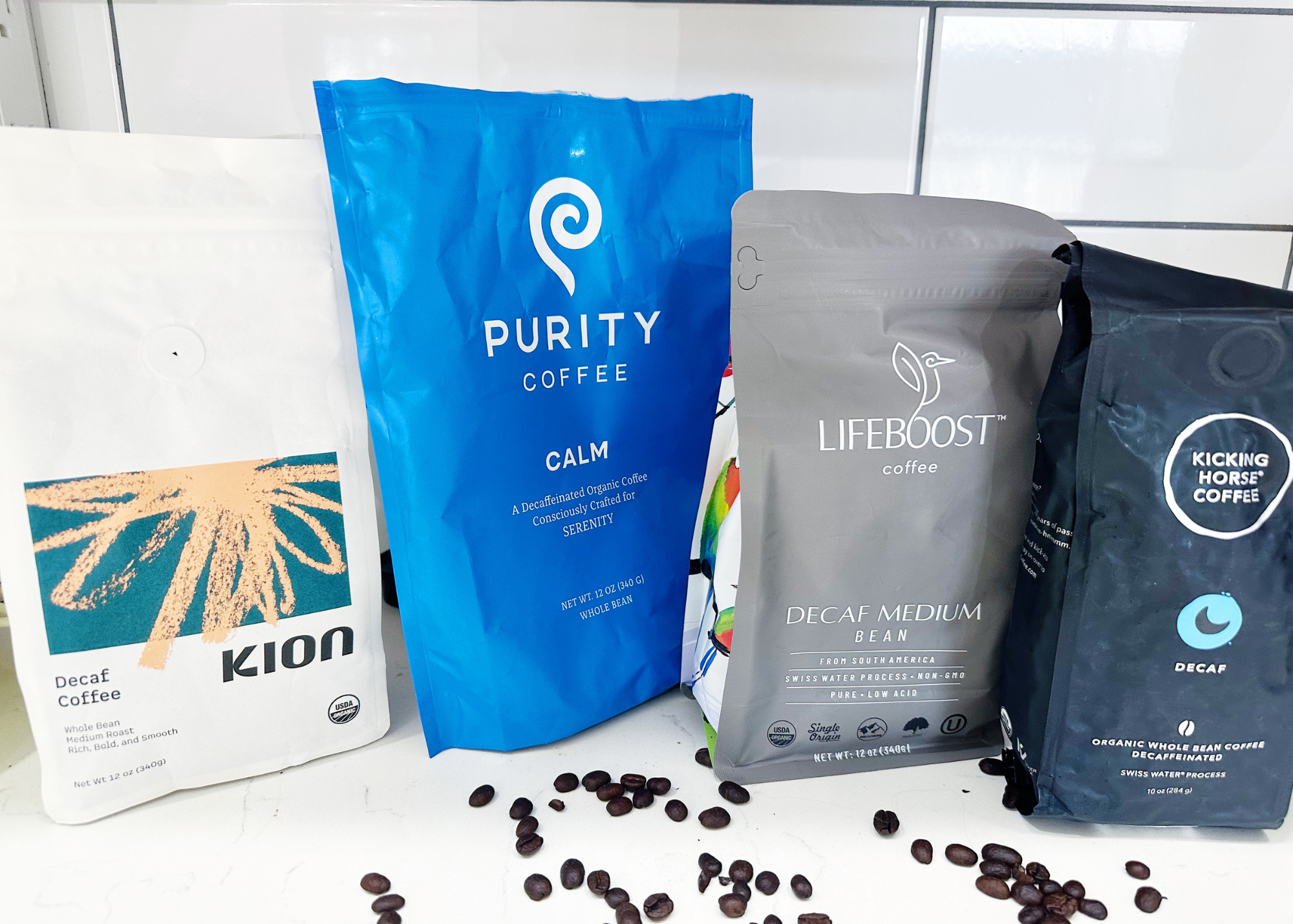
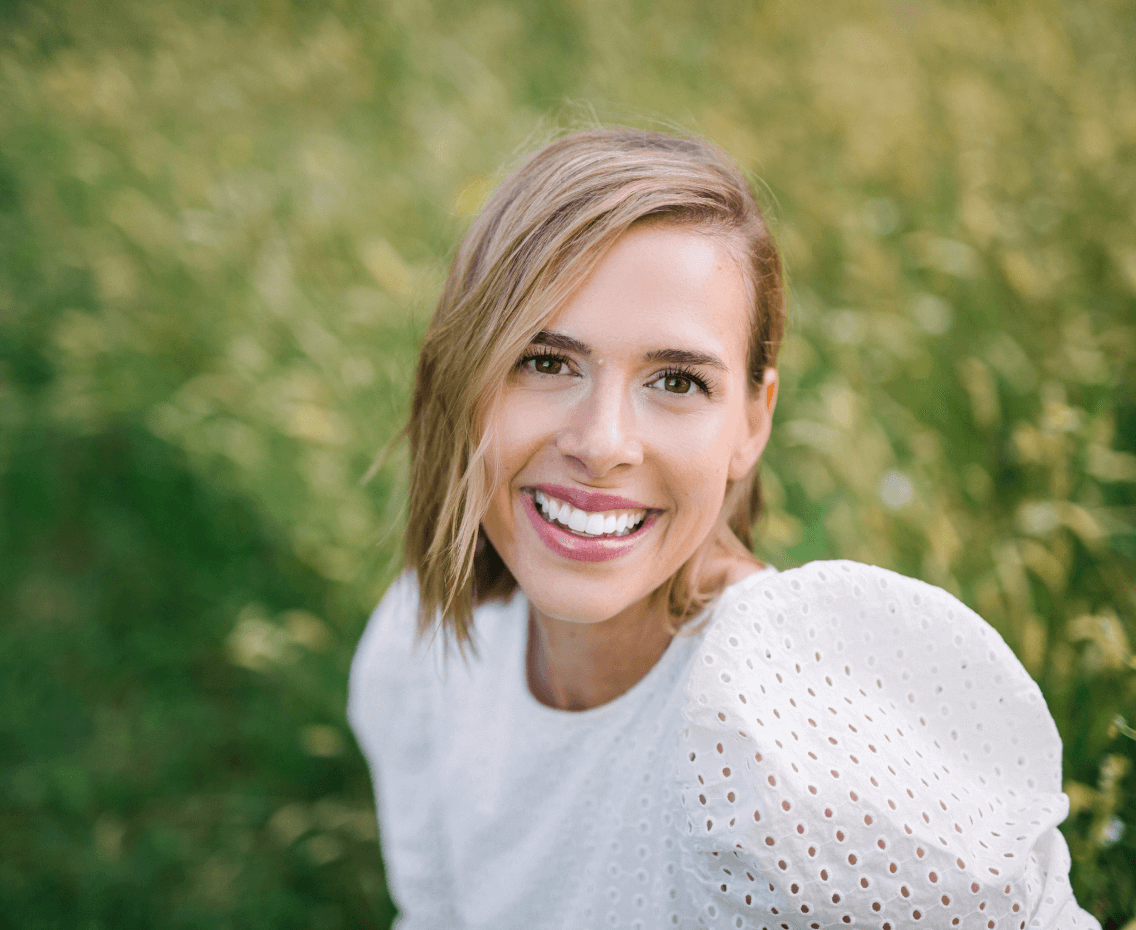
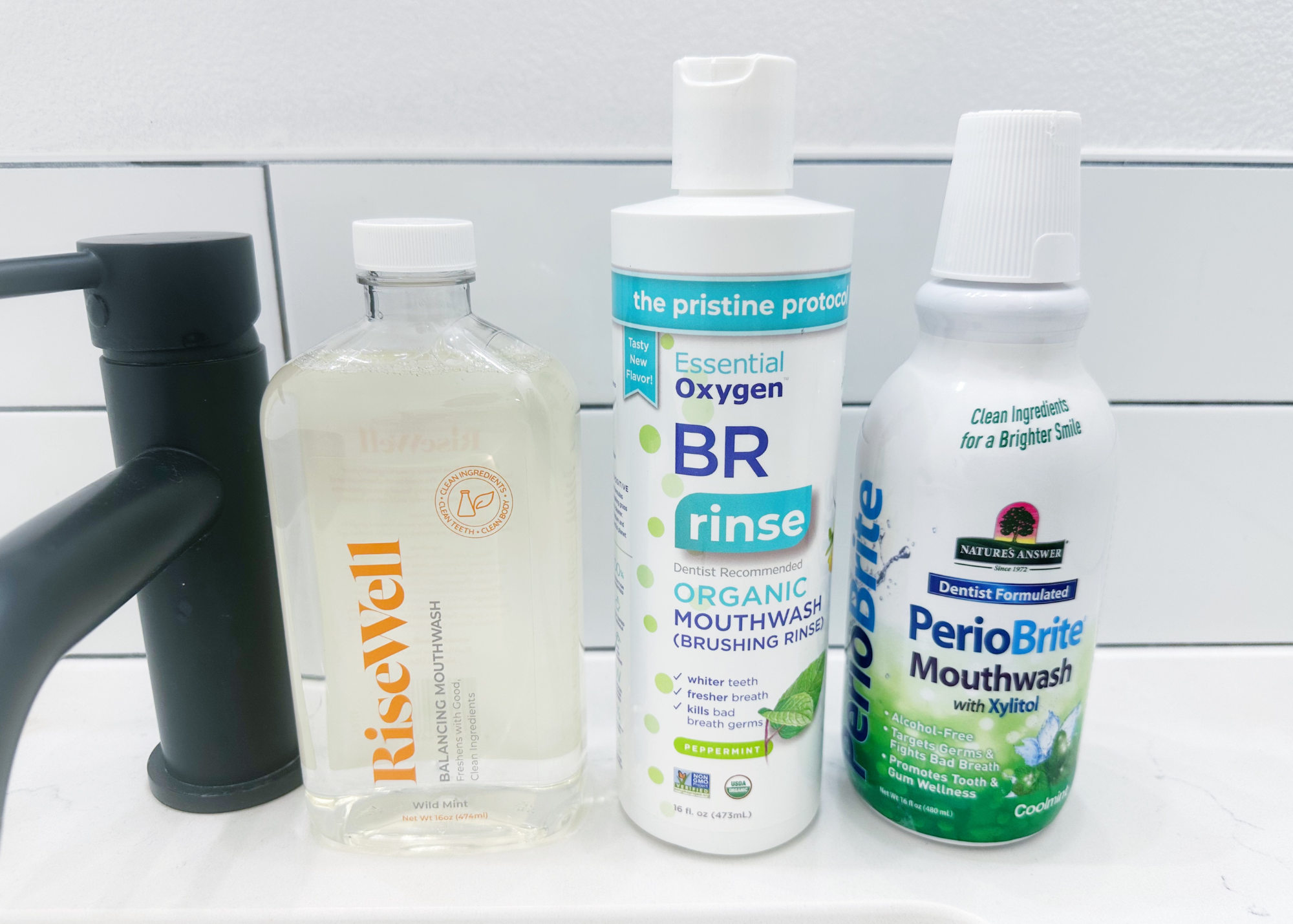
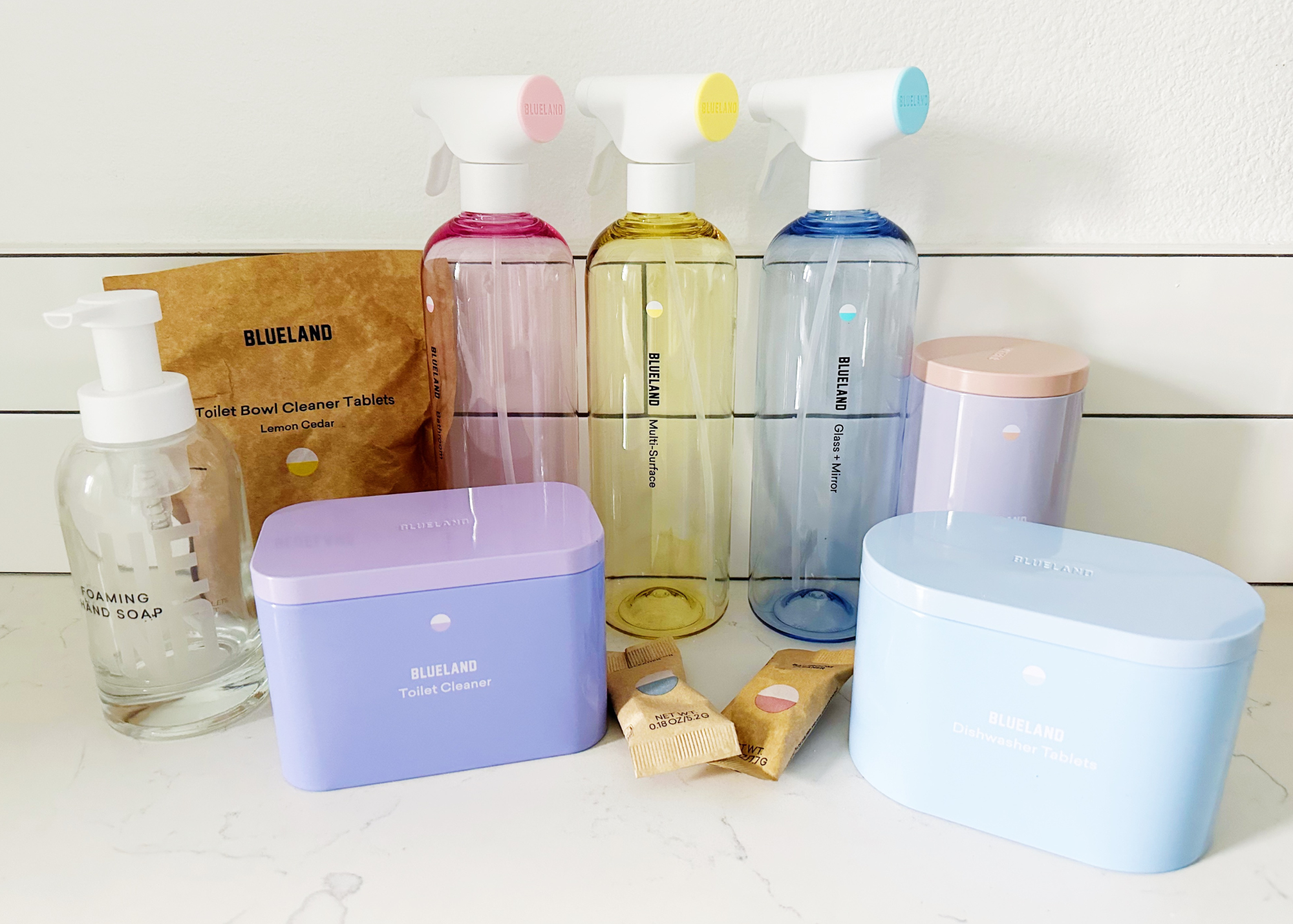
0 Comments